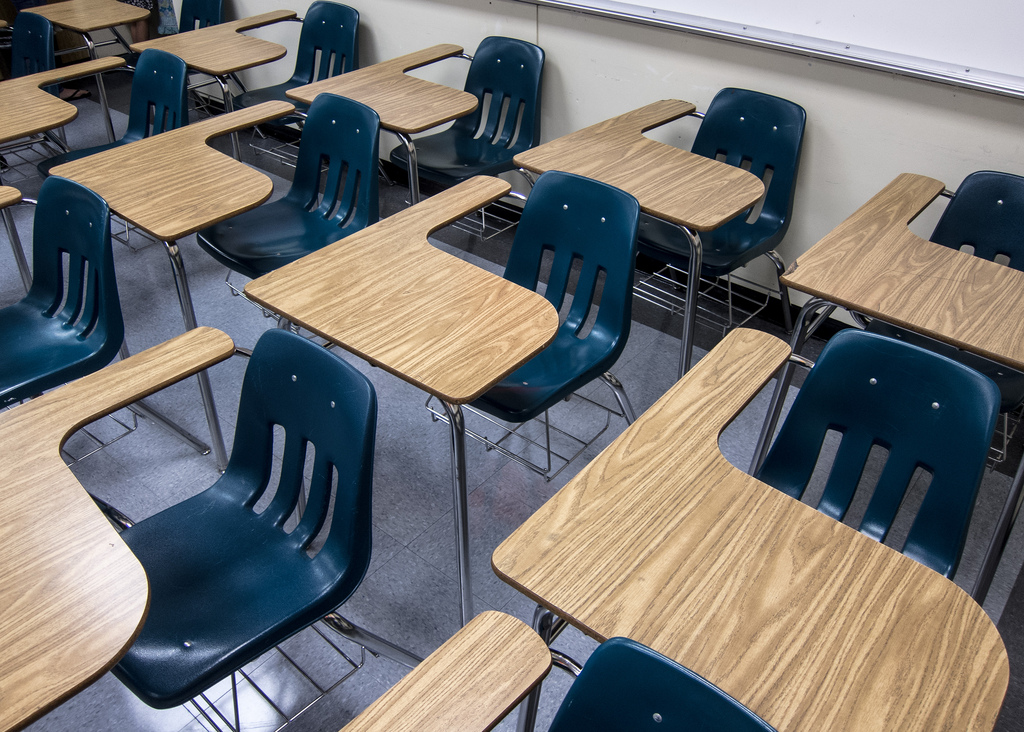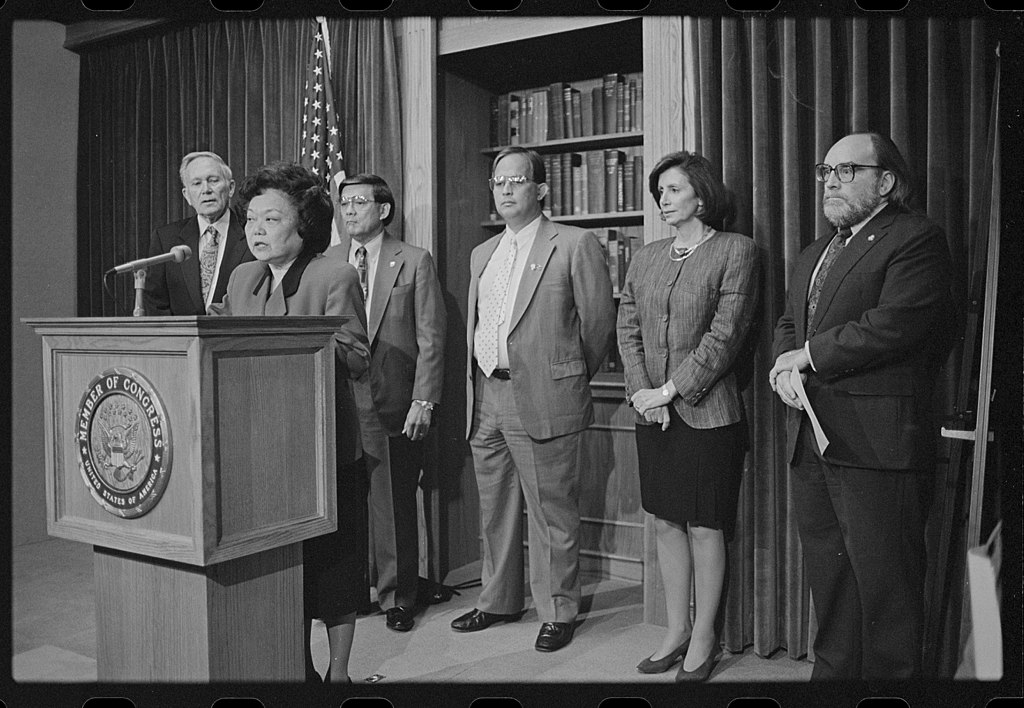Abortion rights, women of color, and LGBTQIA+ people are under attack. Pledge to join us in fighting for gender justice.
NWLC Adds 7 Student Plaintiffs to Lawsuit Challenging Title IX Sexual Harassment Rule
(Washington, D.C.) Today, the National Women’s Law Center (NWLC), along with co-counsel Morrison & Foerster LLP and Diane Rosenfeld of Harvard Law School in her individual capacity, filed an amended lawsuit against Betsy DeVos and the Trump Administration’s Department of Education, challenging their new Title IX sexual harassment rule scheduled to take effect on August 14.
The amended lawsuit – originally filed on June 10 – includes 7 new plaintiffs, all of whom experienced sexual harassment or assault as a student in elementary school, college, or graduate school and who will be harmed by the new rule:
- Jane Doe, a white student entering the fifth grade this year in Livingston County, Michigan, who was in fourth grade when she was repeatedly sexually assaulted by a classmate. Her school refused to protect her from him, at one point saying that the incidents were not “important enough,” and has yet to notify her of any investigation. Jane is afraid that DeVos’ new rule will further embolden her school not to protect her from her assailant. She also worries if she files a complaint against her school with the Department of Education, the Department will not address her complaint under the new rule.
- Susan Doe, a Latina woman with a disability and a first-generation college student at UC Santa Barbara (UCSB), who was sexually assaulted in her apartment by a fellow student in fall 2019. She filed a complaint, but her school is still deciding whether or not to investigate because of the new rule. Susan fears that the new rule will require her school to dismiss her complaint because her assault occurred off campus or will require her to submit to retraumatizing live cross-examination.
- Nancy Doe, a cisgender bisexual Latina woman and former college student at the University of New Haven, who was the victim of a nonconsensual sexual recording that was distributed to many classmates in spring 2018. When Nancy first reported the incidents, her school discouraged her from pursuing an investigation. In 2020, she renewed her request and an investigation is ongoing, but Nancy is worried that her complaint will be dismissed under the new rule because the recording took place off campus and because she has since graduated, or that she will be forced to relive the traumatizing experience during live cross-examination.
- Jill Doe, a cisgender white woman and former college student at Harvard University, who was raped on campus by her then-boyfriend in fall 2019. An investigation is ongoing, but Jill worries that Harvard will likely dismiss her complaint under the new rule because she has since graduated. Jill also is terrified at the prospect of being cross-examined by her rapist’s advisor and may withdraw her complaint to avoid this process.
- Anne Doe, a cisgender white woman and former college student at UCSB, who was raped by a fellow student athlete at an off-campus apartment in fall 2019. She intended to report her rape in spring 2020 but her in-person meeting was canceled due to COVID-19. After the new rule was issued, Anne decided not to file a complaint as she feared that either it would be dismissed because she has since graduated and because the rape occurred off campus, or she would be forced to submit to retraumatizing live cross-examination.
- Lisa Doe, a cisgender Chinese-American woman and current college student at the University of California, Irvine, who was sexually assaulted by a fellow student at his off-campus apartment in spring 2020. An investigation is ongoing, but Lisa fears that the new rule will require her school to dismiss her complaint because her assault occurred off campus or will require her to submit to retraumatizing live cross-examination.
- Sobia Doe, a gender nonbinary Muslim woman with multiple disabilities and former graduate student at the University of California, Santa Cruz, who was sexually harassed and assaulted from 2010-2017 by her graduate advisor and chair of her thesis committee. The school’s investigation is ongoing, but Sobia fears the new rule will either require her school to dismiss her complaint because she has since graduated or require her to submit to retraumatizing live cross-examination.
The following is a statement by Emily Martin, Vice President for Education and Workplace Justice of the National Women’s Law Center (NWLC):
“Betsy DeVos’s mission to weaken sexual harassment protections has a profound human cost. If these rules take effect this summer, thousands of student survivors of sexual assault and other sexual harassment will see their complaints dismissed and their schools forced to ignore the violence. We are proud to represent these individuals who are going to court to fight for the rights, safety, dignity, and equal treatment of all student survivors.”
The following is a statement by Plaintiff Anne Doe:
“These new rules make me feel betrayed – it is a system stacked against survivors. Even now thinking about what he did doesn’t just hurt me because of what he did, it was that he seemed to take pleasure in hurting me. I know he isn’t the only person like him in the world. Survivors have enough to fear and worry about without having to also worry about if your school will support you. Students need protection from their schools.”
The following is a statement by Plaintiff Sobia Doe:
“With these new rules, I would have had to confront my professor while he was assaulting me. How would that even have been possible? When my professor was sexually assaulting me, I lived in perpetual fear–afraid of what he would do to me, afraid that no one would believe me. It was only after years of separation and months of therapy that I felt safe to finally come forward. How can you be expected to advocate for yourself when you’re just trying to survive? Survivors shouldn’t have to fight for themselves while they are still in trauma. Sometimes survivors are only able to share our stories after we’ve had space from the assault. The rules should protect survivors–not their assailants.”
The following is a statement by Plaintiff Susan Doe:
“The new Title IX regulations give more power to my abuser. He will continue to walk the same campus I do. More privilege is given to him again, stripping me away from my voice and my truth. College was my sanctuary, where I could find myself through my learning. Every day, I am reminded that the school is no longer my space, but now a battlefield where I have to constantly go out of my way to avoid him. This is not the academic setting survivors deserve after such a horrifying experience. I fear that the new laws discourage survivors from coming forward and reporting perpetrators. Instead of tackling the problem of sexual violence, the new regulations contribute to the rape culture in our society.”
###




